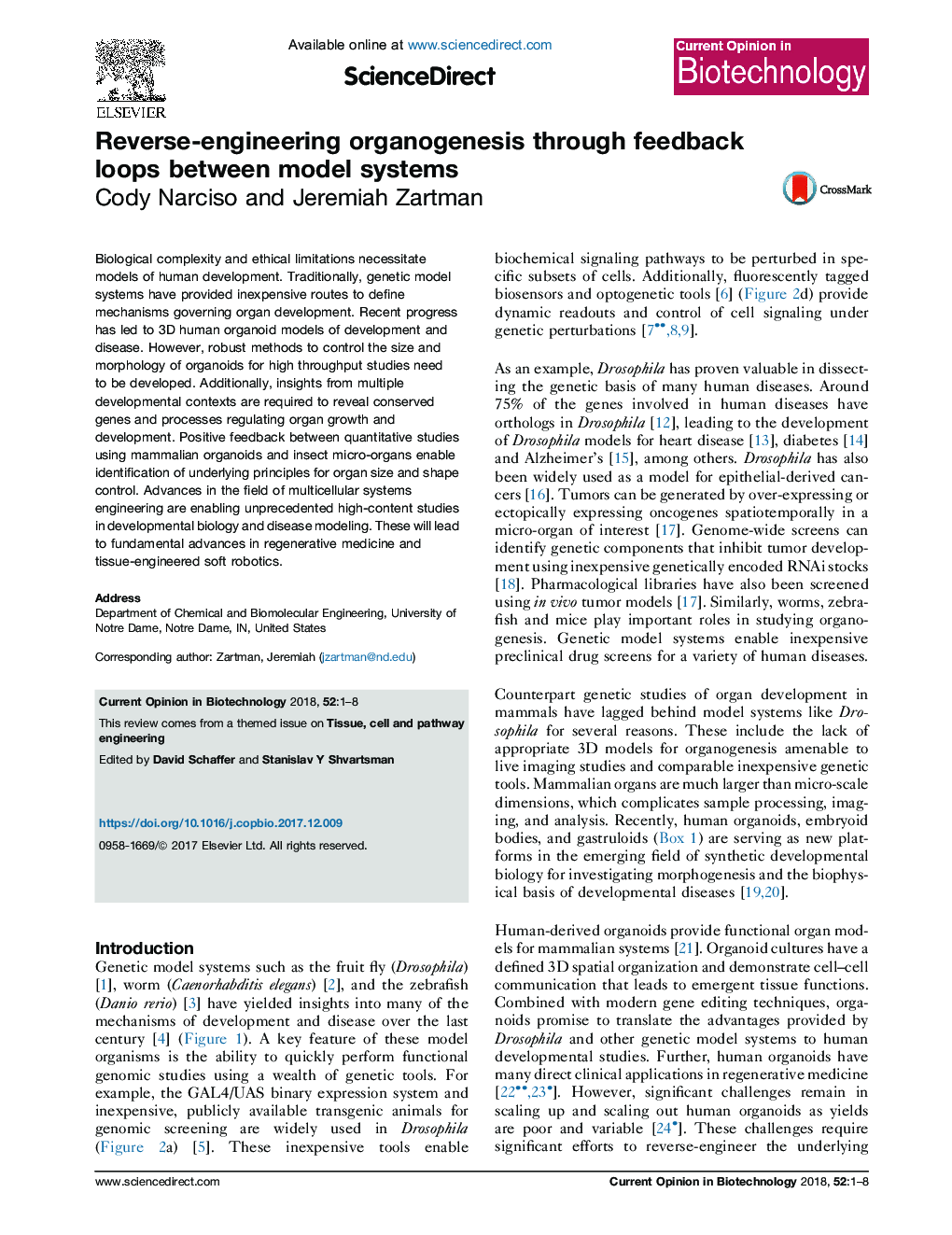| Article ID | Journal | Published Year | Pages | File Type |
|---|---|---|---|---|
| 6487275 | Current Opinion in Biotechnology | 2018 | 8 Pages |
Abstract
Biological complexity and ethical limitations necessitate models of human development. Traditionally, genetic model systems have provided inexpensive routes to define mechanisms governing organ development. Recent progress has led to 3D human organoid models of development and disease. However, robust methods to control the size and morphology of organoids for high throughput studies need to be developed. Additionally, insights from multiple developmental contexts are required to reveal conserved genes and processes regulating organ growth and development. Positive feedback between quantitative studies using mammalian organoids and insect micro-organs enable identification of underlying principles for organ size and shape control. Advances in the field of multicellular systems engineering are enabling unprecedented high-content studies in developmental biology and disease modeling. These will lead to fundamental advances in regenerative medicine and tissue-engineered soft robotics.
Related Topics
Physical Sciences and Engineering
Chemical Engineering
Bioengineering
Authors
Cody Narciso, Jeremiah Zartman,
